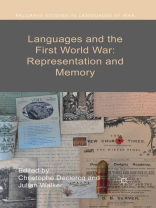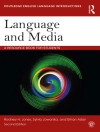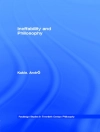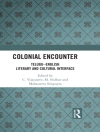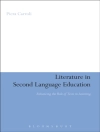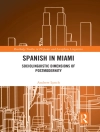With several terms from the First World War still present in modern speech, Languages and the First World War presents over 30 essays by international academics investigating the linguistic aspects of the 1914-18 conflict.
The first of the two volumes covers language change and documentation during the period of the war, while the second examines the representation and the memory of the war.
Communicating in a Transnational War examines languages at the front, including the subject of interpretation, translation and parallels between languages; communication with the home front; propaganda and language manipulation; and recording language during the war.
Representation and Memory examines historiographical issues; the nature of representing the war in letters and diaries; the documentation of language change; the language of representing the war in reportage and literature; and the language of remembering the war.
Covered in the process are slang, censorship, soldiers’ phrasebooks, code-switching, borrowing terms, the problems facing multilingual armies, and gendered language.
Зміст
Acknowledgements
PART I: THE HISTORIAN’S PROBLEMS
1. Problems and challenges of a historical approach
2. Translation, interpretation and mistranslation: Belgian exiles and ‘reformed’ soldiers, their records and problems encountered by English language researchers
PART II: REPRESENTING THE PRESENT
3. ‘Fake Belgium’ Linguistic issues in the diary of Father Achiel Van Walleghem (1914-1919)
4. Out of the Trenches: The Rhetoric of Letters from the Western Front
PART III: LANGUAGE USE AND CHANGE
5. ‘Aussie’: code-switching in an Australian soldiers’ magazine – an overview
6. From Antwerp to Britain and back again: the language of the Belgian refugee in Britain during the First World War
7. Language Changes in the Jewish Community in Kosovo and Metohija after the Balkan Wars (1912-1913) and the First World War (1914-1918)
PART IV: LITERATURE AND REPRESENTATION
8. ‘Excursion into a Foreign Language’: Frederic Manning and Ford Madox Ford
9. 14 / 1914. On Jean Échenoz’s Great War, meta-discourse and the English reception
10. ‘The Language of Espionage: Mata Hari and the creation of the spy-courtesan’
PART V: COMMEMORATION AND MEMORY
11. ”Here is our blood. When are our rights?’ Flemish Graffiti and the Great War’
12. The Languages of Remembrance: An Attempt at a Taxonomy
13. Wartime citations in Ernest Weekley’s An Etymological Dictionary of Modern English (1921) and contemporary dictionaries
14. War Discourse: still talking about the First World War in Britain, 1914-2014
Про автора
Julian Walker is a British Library educator, an artist and writer. His books on language include Discovering Words, Team Talk: Sporting Words and their Origins and Trench Talk.
Christophe Declercq is a lecturer in translation (University College London, UK and University of Antwerp, Belgium) who has been working on Belgian refugees in Britain for well over a decade. On the subject, he has spoken widely at conferences in both Britain and Belgium, has worked with the BBC and VRT (Belgian television) and manages several social media outlets.
